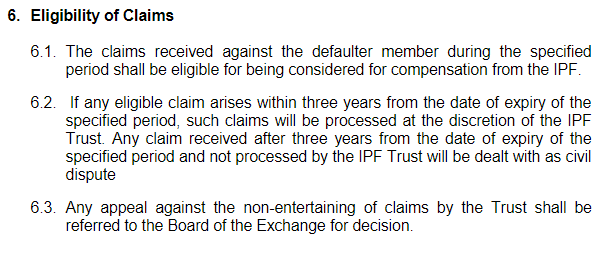Regulators have put strong measures in place to ensure the safety of both your holdings and funds if your stockbroker defaults.
Your holdings protection
In India, you can hold securities electronically in one of two depositories: CDSL or NSDL. Your stockbroker indirectly maintains your securities as a depository participant (a member of CDSL or NSDL). If your stockbroker defaults, since the depositories keep your securities safely, you will be able to transfer your holdings to another stockbroker of your choice.
Your funds protection
Stockbrokers hold funds directly on behalf of their clients. SEBI requires stockbrokers to hold your funds in a separate client pool account. Your stockbroker can only use these funds for investments and trades you make.
Like DICGC guarantees the safety of bank deposits if a bank defaults, the Investor Protection Fund guarantees the safety of your funds lying with the stockbroker (up to ₹25 lakhs).
If your stockbroker defaults, you can file a claim for compensation anytime within three years. You can refer to this SEBI circular that details the eligibility criteria for such claims.

You can refer to these NSE (WEB) and BSE (WEB) pages to learn how to claim compensation:
- NSE: Provides a maximum limit of ₹35 lakhs per investor per defaulter/expelled member regarding claims arising on expulsion/declaration of default of members.
- BSE: Provides coverage up to ₹15 lakhs.
In addition to the above industry-wide measures, to find out how safe it is to trade with Zerodha, visit zerodha.com/z-connect/zerodha/how-safe-is-it-to-trade-with-zerodha-recap.






